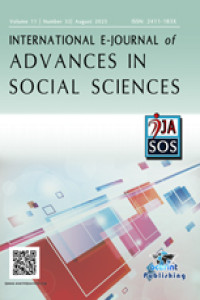Abstract
Criminal sanctions are an essential part of the implementation of criminal liability, as they not only enable the punishment of offenders but also promote their resocialization and help prevent recidivism. In Lithuania and other European countries, increasing attention is being given to alternative sanctions that help reduce prison overcrowding and ensure a fairer and more effective implementation of criminal responsibility. Research conducted by both Lithuanian and foreign authors reveals that criminal measures constitute a significant component of criminal liability. However, their practical application still faces challenges, which highlights the need not only for further academic analysis but also for institutional changes that would promote their effective and individualized use. Academic literature discusses various forms of implementing criminal liability and criminal measures, yet there is a lack of comprehensive research and analysis on their application in courts and their effectiveness in reducing crime. Moreover, there is a shortage of comparative studies that reveal other countries’ experiences and potential ways to improve the use of criminal measures. The aim of this article is to analyse the application of criminal sanctions in the implementation of criminal liability in Lithuania and to carry out a comparative analysis with other European countries. The methods applied include the analysis of scientific literature, legal acts, and court practice case studies. The research revealed that courts increasingly apply criminal sanctions independently, even in cases where no criminal penalty is imposed. However, there are still instances where these sanctions are applied in a formal manner, without proper reasoning or an assessment of proportionality, which limits their real impact. Effective implementation requires systematic judicial assessment, institutional cooperation, and practical enforcement tools.
References
- Appleton, C., Todd-Kvam, J., Dahl, H., Johnsen, B., & Whittington, R. (2025). The evolution and implementation of Norway’s ultimate penalty: An exceptional approach to life imprisonment?. Law & Social Inquiry, 1-34.
- Criminal Code of the Republic of Lithuania, adopted by Law No. VIII-1968 on 26 September 2000. Register of Legal Acts. Consolidated version valid from 01 February 2025. Official Gazette, 2000-10-25, No. 89-2741.
- Code of Criminal Procedure of the Republic of Lithuania, adopted by Law No. IX-785 on 14 March 2002. Register of Legal Acts. Consolidated version valid from 01 February 2025. Official Gazette, 2002-04-09, No. 36-1349.
- Criminal Law of the Republic of Latvia. (2025). Krimināllikums: Section 55. Latvijas Vēstnesis.
- Penal Code of the Republic of Poland. (2025). Kodeks Karny: Article 39. Dziennik Ustaw.
- Swedish Penal Code. (2025). Brottsbalken. Sveriges Riksdag.
- Frase, R. S. (2025, April). Michael Tonry And Sentencing Proportionality. In Criminal Law Forum (pp. 1-24). Dordrecht: Springer Netherlands.
- German Criminal Code. (2025). Strafgesetzbuch (StGB): Sections 45–46. Bundesministerium der Justiz.
- Ginting, M. S., Dewi, E., Amin, M., Tamza, F. B., & Ahmad, T. (2025). Enhancing Law Enforcement Effectiveness in Addressing Land Mafia Practices to Safeguard Community Land Rights. Ius Poenale, 6(1), 11-24.
- Drakšas, R. (2023). Criminal measures as a form of criminal liability enforcement. Lituanistika.
- Michailovič, I. (2020). The importance of changing violent behavior in preventing domestic violence.Law Review, 2(26), 61–75.
- Ondřejek, P., & Horák, F. (2024). Proportionality during times of crisis: precautionary application of proportionality analysis in the judicial review of emergency measures. European Constitutional Law Review, 20(1), 27-51.
- Pranka, D., & Gelžinytė, J. (2017). Criminal measures – the application issues of contributions to the Victims of Crime Fund. Law Review, 1(15), 88–102.
- Staškevičius, B. (2021). Criminal measures: concept and application issues [Master’s thesis, Vilnius University].
- Urbonaitė-Barkauskienė, L. (2021). The effectiveness of the application of criminal measures: topical issues of legal practice. Social Sciences Studies, 13(3), 42–56.
- National Courts Administration. (2024). Criminal case statistics 2021–2023. https://www.teismai.lt/lt/visuomenei-ir-ziniasklaidai/statistika/106
- National Courts Administration. (2024). Courts' activity report for 2023. https://www.teismai.lt/lt/teismu-savivalda/teismu-ir-teismu-savivaldos-instituciju-veiklos-ataskaitos/198
- Supreme Court of Lithuania. (2022a). Ruling in criminal case No. 2K-7-20-2022. LITEKO.
- Supreme Court of Lithuania. (2024). Ruling in criminal case No. BIK-278/2024. LITEKO.
- Supreme Court of Lithuania. (2025c). Ruling in criminal case No. 2K-18-976/2025. LITEKO.
- Supreme Court of Lithuania. (2025d). Ruling in criminal case No. 2K-40-813/2025. LITEKO.
- Supreme Court of Lithuania. (2025e). Ruling in criminal case No. 2K-49-489/2025. LITEKO.
- Supreme Court of Lithuania. (2025f). Ruling in criminal case No. 2K-80-697/2025. LITEKO.
- Supreme Court of Lithuania. (2025g). Ruling in criminal case No. 2K-47-648/2025. LITEKO.
- Kaunas Regional Court. (2024). Ruling in criminal case No. 1-294-1035/2024. LITEKO.
- Šiauliai Regional Court. (2025). Ruling in administrative case No. T-87-922/2025. LITEKO.
- Klaipėda Regional Court. (2025). Ruling in administrative case No. T-123-586/2025. LITEKO.
Details
| Primary Language | English |
|---|---|
| Subjects | Sociology of Law |
| Journal Section | Research Article |
| Authors | |
| Early Pub Date | August 7, 2025 |
| Publication Date | August 30, 2025 |
| Submission Date | July 5, 2025 |
| Acceptance Date | July 21, 2025 |
| Published in Issue | Year 2025 Volume: 11 Issue: 32 |
Contact: ijasosjournal@hotmail.com
The IJASOS Journal's site and its metadata are licensed under CC BY
Published and Sponsored by OCERINT International © 2015- 2025

